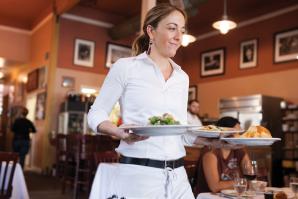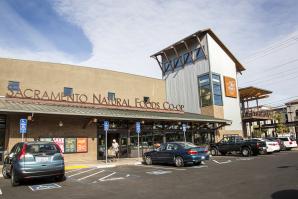Latest Stories

Startup of the Month: LiquidGoldConcept
Health tech startup delivers breastfeeding toolkit — will mothers and med students latch on?
In the first few days after a baby is born, the mother produces colostrum — a yellowish, thick and sticky substance packed with fat, micronutrients and antibodies. In breastfeeding circles, this special milk is called “liquid gold,” which is essentially a supercharged immunity boost to equip newborns for their new world.

Meat, Water and Global Warming
Despite environmental impacts of livestock, restaurants aren’t giving up their meat
According to some ecologists and experts on global agricultural trends, our eating habits must change dramatically if we are to overcome environmental issues facing the planet and its future generations.

What’s for Dinner?
Ann Evans, a founder of the Davis Farmers Market, updates her cookbook
The Davis Farmers Market was founded in 1976 by a group of residents that included Ann Evans, local author, publisher and consultant. She’s still involved with the market today and wants to inspire more people to shop and cook seasonally.

Shopping the New Sacramento Natural Foods Co-Op
It’s bigger, brighter and nearly doubling the business
Kurt Spataro has shopped at the Sacramento Natural Foods Co-Op in three different locations since the 1980s, but he sees “a lot of new things to discover” at the co-op’s bigger and brighter new home at 2820 R St.

Waste Not
Sacramento restaurants reduce food waste and help build healthy soil
Though largely hidden from the consumer’s eye, food waste is hardly insignificant. According to the U.S. Department of Agriculture, we waste between 30 to 40 percent of food each year — and with it water, money and the chance to feed food-insecure people.

Park Winters a Gem in Yolo County
The Restaurant at Park Winters offers true foodie experience
Out on County Road 26, just west of Interstate 505 in Yolo
County, Park Winters sits holding court against a backdrop of the
Vaca Mountains as it has since George Washington Scott built the
mansion in 1865. Now under the ownership of partners John Martin
and Rafael Galiano, this 151-year-old
10-acre property is thriving with new life.

Bee-ing Friendly in Our Yards
Home improvement chains offer consumers more bee-friendly plants
As Californians continue to opt for drought-tolerant landscaping, thus requiring less lawn and more plants outside a home, major home improvement chains are committing to selling bee-friendly plants that do not contain neonicotinoids, a widely-used insecticide.

All Aspects of U.S. Food System Come Together for Farm Tank
Sacramento hosts inaugural event to address tough questions in the food system
When Sacramento declared itself the Farm-to-Fork Capital of America in 2012, it opened a floodgate of introspective conversations across the region. How do we truly lead in agriculture?

Who Will Harvest When I’m Gone?
Small farms struggle to connect with the next generation of agricultural producers
Annie and Jeff Main started farming after college, inspired by the back-to-land movement of the 1970s. They farmed on rented land for 17 years and then bought their own 20 acres in Capay Valley, in Yolo County.

All This Pie Talk Got You Hungry?
4 local spots to get your sweet-tooth fix
Got pie on your mind? Well, here’s our list of bakeries and pie shops in the Capital Region who can really serve it up. But wherever you go for your pastry needs, remember to be safe and keep your cool.


